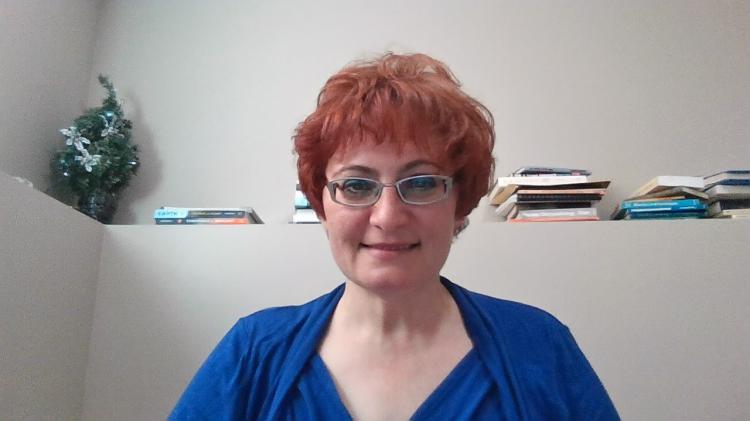Students in Lethbridge College's School of Environmental Sciences didn't just research the problem of litter this fall; they shared their knowledge with elementary and junior high students.
College students in Dr. Tali Neta's Geomorphology class worked in pairs to collect data such as photos, location and types of litter using a free mobile app called OpenLitterMap. Their data is now part of the app's world map, and one of the students is one of the most prolific app contributors in Canada.
Using supporting data from the City of Lethbridge and Helen Schuler Nature Centre's Coulee Cleanup events from 2015 to 2019, the college students created a narrative about the scope of the litter problem in Lethbridge and beyond, why it's so damaging to the environment and ways individuals can help reduce litter. The students created Story Maps, web-based, interactive presentations of photos, text, videos and maps about litter, which they shared over Teams sessions to participating classes of younger students.
About a dozen teachers from Lethbridge School Division and Holy Spirit signed up for the online litter presentations which were given over three days in December.

Dr. Tali Neta
"We need to bring awareness," Neta says. "People don't think about the impact of litter to people and wildlife, to our air, soil and water. It's such an important message. The more people are aware of it, the better for the environment."
"It's surprising to me that littering is still a problem," says student Kevin Brooks, who earned his Natural Resource Compliance diploma in spring 2021 and is now working toward his Bachelor of Ecosystem Management. "How is it still a thing? We've all been educated on littering and it still happens."
Brooks says he hopes the presentations to school-aged children will help shift attitudes toward litter. Far from a mere bad habit, litter damages the environment which affects health, whether through chemicals released as litter decays or through direct consumption of waste by unsuspecting pets and wildlife. His presentation to elementary students included a call to action to them "as our future" to prevent litter.
"Litter is a pretty simple subject in a pretty complex education we're taking," he says. "We might be learning how to sequester carbon to combat climate change. That we could spend time talking to kids about litter made the project worthwhile."
Originally from Ontario and now calling Grande Prairie home, Brooks hopes to make a career in the fisheries, so he knows well how litter is damaging waters around the globe. His Story Map presentation included a video of garbage in the Pacific Ocean, and a map to demonstrate that litter dropped anywhere in Canada can find its way to the ocean.
His project partner Emma Tom Tom embraced use of the OpenLitterMap app, and she's now one of the top app users in Canada.
The difference the LC students have made with their work is already apparent. Where once Lethbridge had no data on the app, there are now more than 500 entries in the city. That helped push Canada into the Top 10 of the app's #LitterWorldCup.
Tom Tom is now second in Alberta for the most app entries, third in Canada. OpenLitterMap gamifies litter data collection by giving users points for their contributions.
"I thought the game of how much data you're sharing on the app was brilliant because everybody's a little bit competitive, right?" Tom Tom says.
"Using the app is an easy process. You take a picture on your phone. The location is already entered using your phone location. You can tag what you see in the photo and if you start typing, let's say, plastic,' it will show suggested items, like food plastic, industrial plastic, or a plastic bottle cap."
Disposable face masks are now the dominant item littering the landscape, students found. Cigarette butts and fast-food wrappers are also common.
Tom Tom says she hopes the class presentations will inspire some of the younger students to try the app, and she hopes the app develops a way to incentivize users to pick up and properly dispose of litter.
She keeps a plastic bag in her backpack to collect what she can, unless it is a biohazard or is just too sloppy to carry.
Tom Tom, whose home is Selkirk First Nation in the Yukon, says the Renewable Resource Management program aligns with her passion for the environment. As a child, she remembers clipping newspaper articles about the climate and collecting recyclables after big community events to help clean up while making a little cash. As an adult, she participated in a national climate change conference, she has five years of experience working for a private-sector environmental company and, this summer, she has a job lined up with the Yukon government's Environment department.
And she expects to continue to use the OpenLitterMap app.
"You've got to take care of Mother Earth," she says. "People have to stop that mindset of Oh, I'm just one person in seven billion; how is one person going to change something?' If we all work together and do our part, we can."
Neta plans to continue using the app, Story Maps and presentations to school children as part of a longer-term research project, with financial support from the Centre for Applied Research Internal Fund (CARIF) and Social Sciences and Humanities Research Council (SSHRC) institutional grant (SIG). She and instructor Joshua Hill will be researching human behaviours toward litter and wildlife, and they will be collaborating with industry partners to raise awareness and identify solutions.
To see the students' presentations on litter, visit these Story Maps links:













